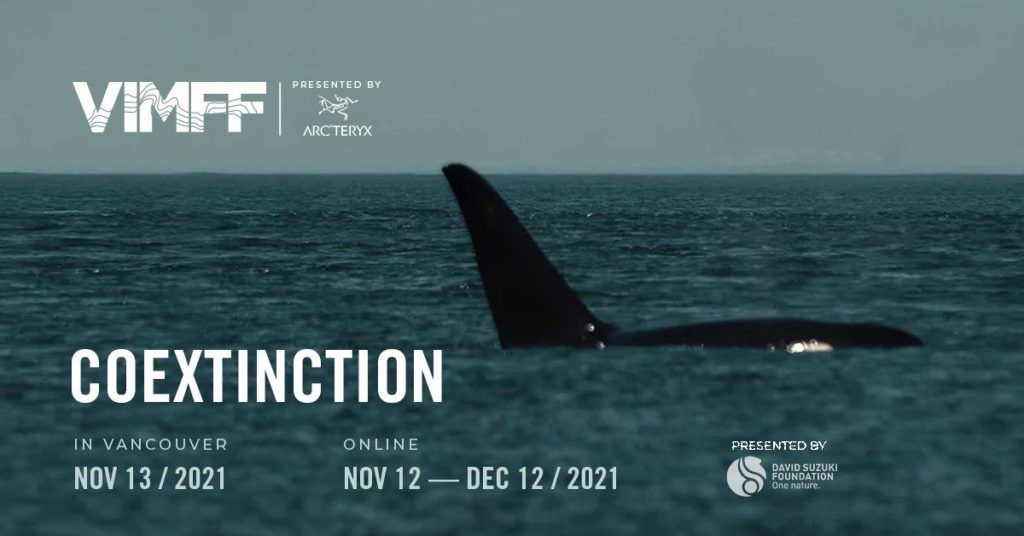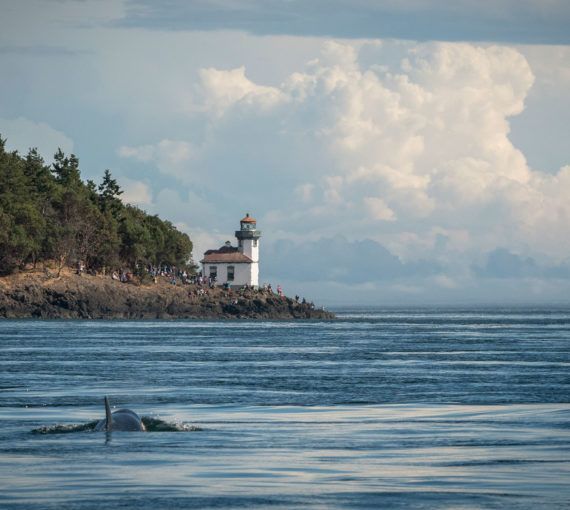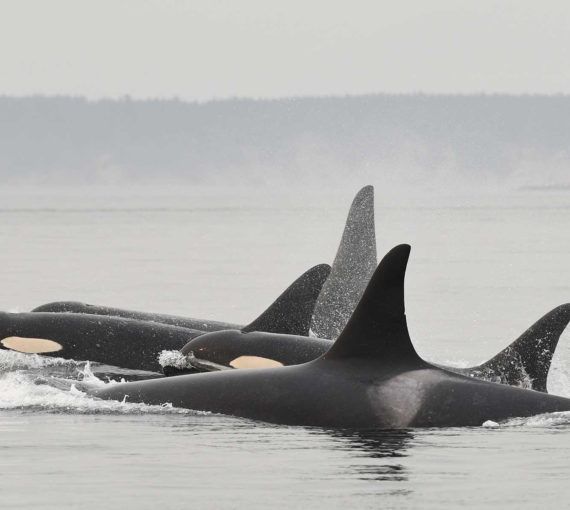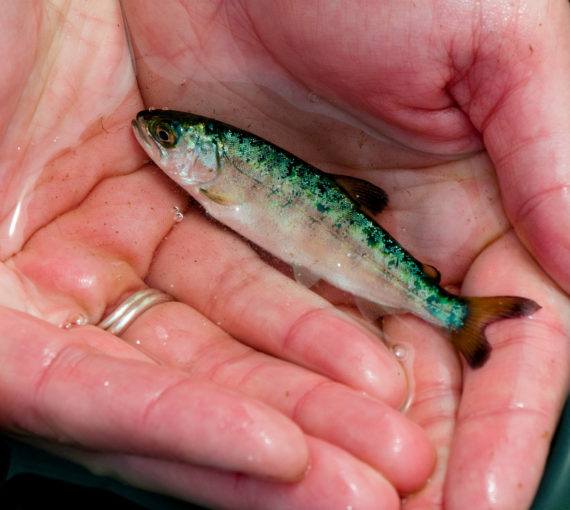 Sadly, only 73 southern resident killer whales remain in the Salish Sea. Threats like pollution, noise from vessels and a lack of Chinook salmon — their primary food source — are pushing these iconic marine mammals toward extinction.
Sadly, only 73 southern resident killer whales remain in the Salish Sea. Threats like pollution, noise from vessels and a lack of Chinook salmon — their primary food source — are pushing these iconic marine mammals toward extinction.
The story of these orcas is truly remarkable. Not only are they an extremely intelligent apex predator that plays a vital role in the ecosystems where they live, their journey is one that involves issues around wild salmon protection, Indigenous rights, fossil fuel extraction, eco-tourism and much more.
These magnificent neighbours of ours are at risk of extinction, and their survival is in our hands…
David Suzuki
In November 2021, we were thrilled to partner with the Vancouver International Mountain Film Festival to present a screening of the feature documentary Coextinction. The riveting film provides insights into the threats and injustices facing these iconic marine mammals. As filmmakers Gloria Pancrazi and Elena Jean travel across the Pacific Northwest, they meet activists, scientists and Indigenous leaders who unveil the factors driving the orca’s decline.
“These magnificent neighbours of ours are at risk of extinction, and their survival is in our hands,” David Suzuki Foundation director general for Western Canada and nature portfolio lead Jay Ritchlin said. “People must learn to live on and near the Salish Sea with much less impact. We need to help recover the Chinook salmon stocks we have decimated and change the way we use the ocean to give orcas space to live. Whale-watching boats and tanker traffic that cause noise and physical harm, and fish farms that spread disease to the salmon in the orca’s migratory paths, show how human activity affects nature in devastating ways. It’s not only the orcas that are affected by human overreach. The film’s title is apt. If we don’t dramatically and rapidly change our ways, this could truly be a coextinction story.”
This film gives viewers a great opportunity to see these majestic creatures in their natural habitats and learn about the risks they face as well as what solutions exist.
I have a difficult time even thinking of a world without these orcas, yet sadly, this could happen within the next couple of decades.
Jay Ritchlin, Director General, B.C. and Western Region
Thanks to filmmakers Gloria Pancrazi and Elena Jean; Kwakwabalas, Chief Ernest Alfred of Namgis First Nation, Alert Bay; Will George of the Tsleil-Waututh Nation; Bob Chamberlin of the Kwikwasut’inuxw Haxwa’mis First Nation; other Indigenous leaders supporting this work; Alexandra Morton and all the scientists calling for better protections for these amazing creatures, and of course our friends at VIMFF.
“We are living in an era when hundreds of species are going extinct every day,” Ritchlin said. “I have a difficult time even thinking of a world without these orcas, yet sadly, this could happen within the next couple of decades. But I’m not giving up, and neither is this amazing group of storytellers, scientists and activists. We can only hope powerful films like this inspire more and more people to join us.”
Do you want to help protect the 73 remaining Salish Sea orcas?
Recent research shows that some whale-watching operators in Canada continue to travel too close to the 73 endangered southern resident killer whales (i.e., within 400 metres, in violation of Canadian law). Help protect these important marine mammals by asking Prime Minister Trudeau to better enforce the laws designed to keep vessels away from them.
#JoinThePod today!


